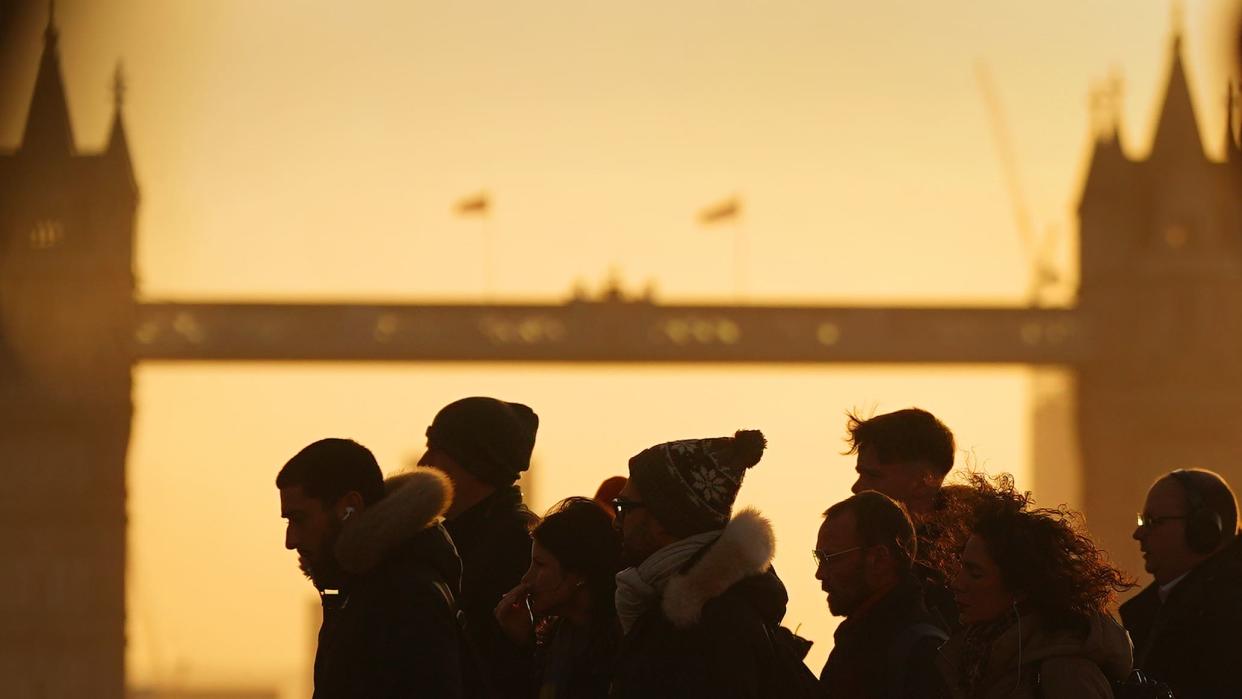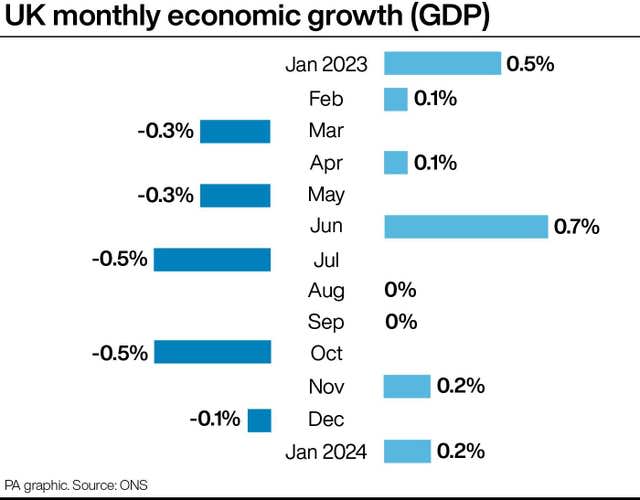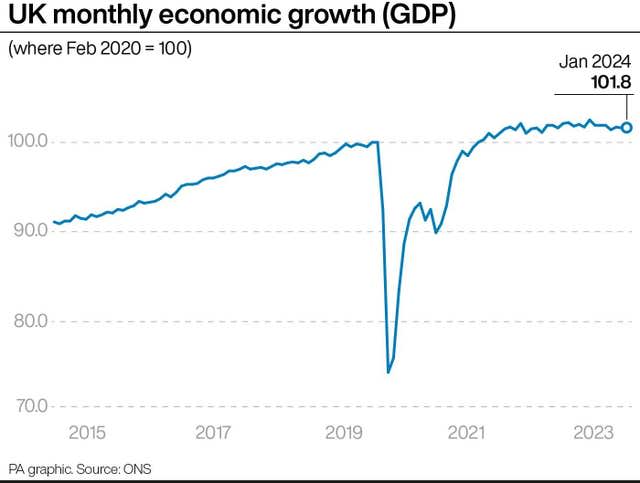UK economy returns to growth in January after dipping into recession

The UK economy returned to growth at the start of the year, according to official figures, raising hopes that the country could be on its way out of a shallow recession.
Gross domestic product (GDP) is estimated to have risen by 0.2% in January, following a decline of 0.1% in December, the Office for National Statistics (ONS) said.
A strong month for retail sales helped drive growth in January, with consumers making the most of post-Christmas sales and spending more in supermarkets.
The services sector, which also includes industries like hospitality, culture and leisure, grew by 0.2% during the month and was the largest contributor to the rise in GDP.
It was also helped by improved activity for housebuilders, thanks to new work and repair and maintenance jobs, following a sluggish year for the wider housing market.
It indicates that the economy could be turning a corner after dipping into a technical recession at the end of last year, with GDP declining by 0.3% over the fourth quarter.
A recession is defined as two consecutive quarters of negative growth.
A slight rebound in growth in January could raise hopes that the UK is already on its way out of what would be a short-lived and shallow downturn.
Suren Thiru, economics director at the Institute of Chartered Accountants in England and Wales (ICAEW), said the slight rebound in GDP suggests the UK “took its first step towards exiting recession in January”.
But he warned: “January’s recovery may have been followed by a more muted performance in February, with the significant wet weather likely to have suppressed activity, despite a boost to incomes from lower inflation.”

He added that UK interest rates are likely to remain unchanged this month, but that “with the economy struggling and inflation slowing, the case for loosening policy by the summer is growing”.
Rob Wood, chief UK economist for Pantheon Macroeconomics, said: “Last year’s minor recession is already rapidly receding in the rear-view mirror as real wage growth drives improving household spending power.”
Real regular wages rose by 2% in January, the ONS said on Tuesday, meaning they rose faster than the rate of Consumer Prices Index (CPI) inflation for the average worker.
Mr Wood estimated that GDP could grow by 0.3% in the first three months of the year, and that the first cut to interest rates could happen in June.
Liz McKeown, director of economics statistics at the ONS, said: “The economy picked up in January, with strong growth in retail and wholesaling.
“Construction also performed well, with housebuilders having a good month, having been subdued for much of the last year.
“These were partially offset by falls in TV and film production, lawyers and the often-erratic pharmaceutical industry.
“Over the last three months as a whole, the economy contracted slightly.”

Real GDP is estimated to have fallen by 0.1% in the three months to January, compared with the three months to October 2023.
Chancellor Jeremy Hunt said: “While the last few years have been tough, today’s numbers show we are making progress in growing the economy – part of which makes it possible to bring down national insurance contributions by £900 this coming year.”
“But if we want the rate of growth to pick up more we need to make work pay, which means ending the unfairness of taxing work twice.”
Shadow chancellor Rachel Reeves said Britain remains “worse off” and that Prime Minister Rishi Sunak’s claims that his plan for the economy is working are “already in tatters after Britain was hit by recession last year”.


